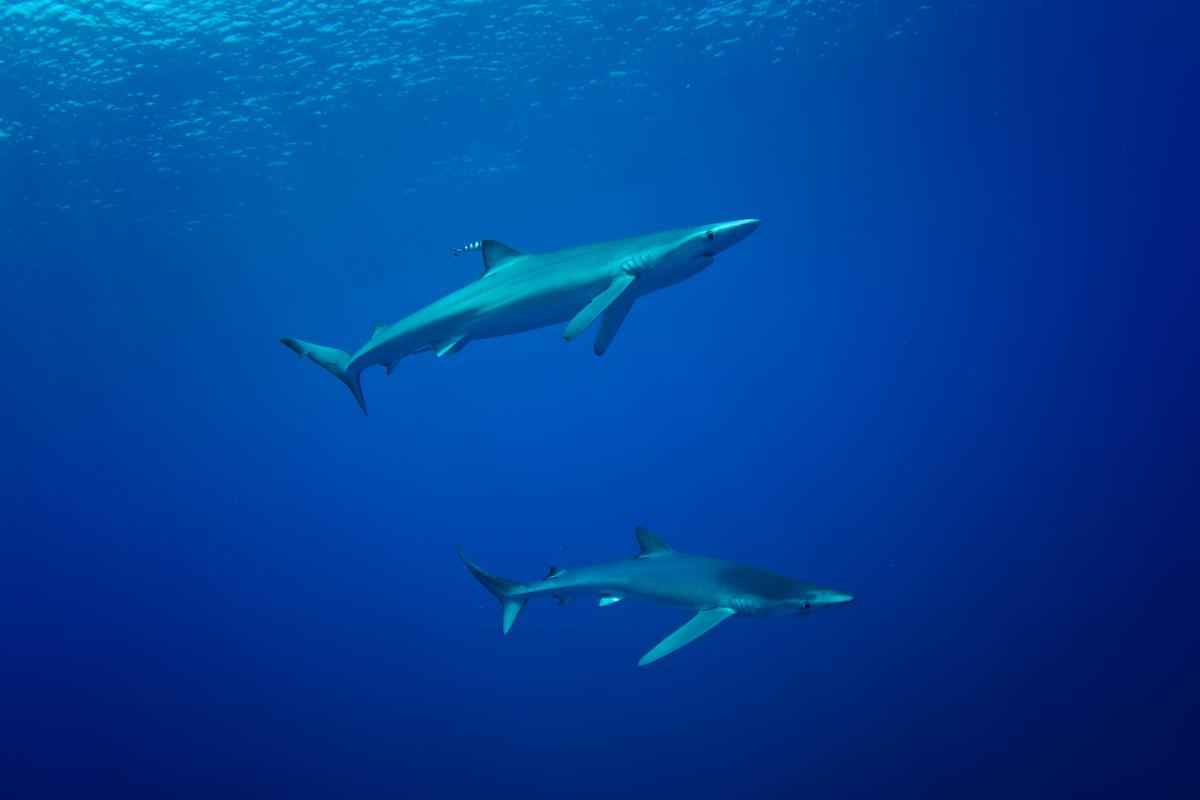October 28, 2018
Senator MacDonald: Shark finning is unsustainable, irresponsible and ecologically reckless
Estimated reading time: 0 minutes
BY: Jennifer Whyte
Topics: Shark Fin Ban
Growing up in Nova Scotia means you’re surrounded by the ocean, and it has fostered in me a connection to its value and importance. The diverse species that live in the ocean are remarkable, and one of the more interesting are sharks. These incredible animals have lived in the ocean for over 420 million years, they’ve witnessed the rise and fall of the dinosaurs and survived five mass extinction events. Sharks can be found around the world, including off the coast of my hometown in Cape Breton where you can spot species such as basking sharks, porbeagles and spiny dogfish.
These incredible animals once thrived in the ocean, but their populations are now dwindling. One of the main causes of this devastation is the market for their fins – the unsustainable, irresponsible and ecologically reckless practice of shark finning.
This devastation isn’t just dire for sharks – it should be alarming for humans too. Many of the large shark species are top apex predators and impact ecosystems in significant ways. They manage our oceans, preying on weak or sick species, removing them from the ecosystem.
Fins from up to 73 million sharks end up in the global fin trade every year. Shark finning is a brutal and wasteful practice. When a shark’s fins are cut off it is often still alive, then the shark is tossed back into the ocean where, without its fins, it will drown, bleed to death, or be eaten by other fish.

Sadly, Canada is playing an active role in this devastation. Although shark finning has been banned in Canadian waters since 1994, the importation of fins is still permitted. In fact, Canada is the largest importer of shark fins outside of Asia. And demand for fins is growing. In 2017, Canada imported 170,000 kilograms of shark fins – a 60 per cent increase from 2012. Unfortunately, we have no way of knowing where the fins entering Canada were sourced. It is impossible to determine if they are a product of shark finning and if the fins belong to a species at risk.
That’s why I introduced Bill S-238, the Ban on Shark Fin Importation Act, in 2017, proposing to make it illegal to import shark fins into Canada. I felt that pioneers such as the late filmmaker Rob Stewart, and organizations such as Oceana Canada, have done amazing work to raise awareness of this issue, but that the onus is on legislators around the world to take action.
Support for S-238 continues to grow. In addition to the numerous groups advocating for this cause – including Oceana Canada, Humane Society International, the Stewart Family and those associated with Sharkwater – I was also thrilled to receive the support of Canada’s two largest municipalities, Toronto and Montreal, both of which passed motions at city council to support my bill.
After thorough consideration by my colleagues in the Senate, including by our Fisheries and Oceans Committee, and after amendments to strengthen the Bill to include the derivatives of fins and to also prohibit exportation, I am pleased to advise that on October 23, 2018, the Senate adopted Bill S-238 at third reading. It will now be sent to the House of Commons for consideration there.
Oceana Canada’s petition to support the Bill has quickly garnered over 45,000 signatures. It is clear to me that Canadians are in agreement that shark finning is an inhumane and wasteful practice that has no place in this country. If you haven’t already done so, please sign the petition to show your support for the passage of Bill S-238. Help end the import and export of shark fins in Canada, the health of the ocean depends on us standing up for these incredible animals.

Michael L. MacDonald is a senator representing Nova Scotia. He is deputy chair of the Senate Committee on Energy, the Environment and Natural Resources, as well as a member of the Senate Committee on Transport and Communications.
MOST RECENT
June 19, 2025
June 2, 2025
OPINION: From Crisis to Opportunity: Rebuilding Canada’s Fisheries for Climate and Economic Security

